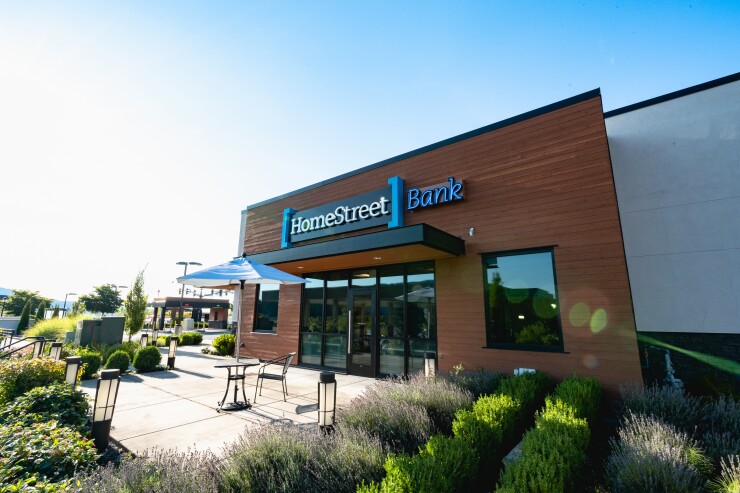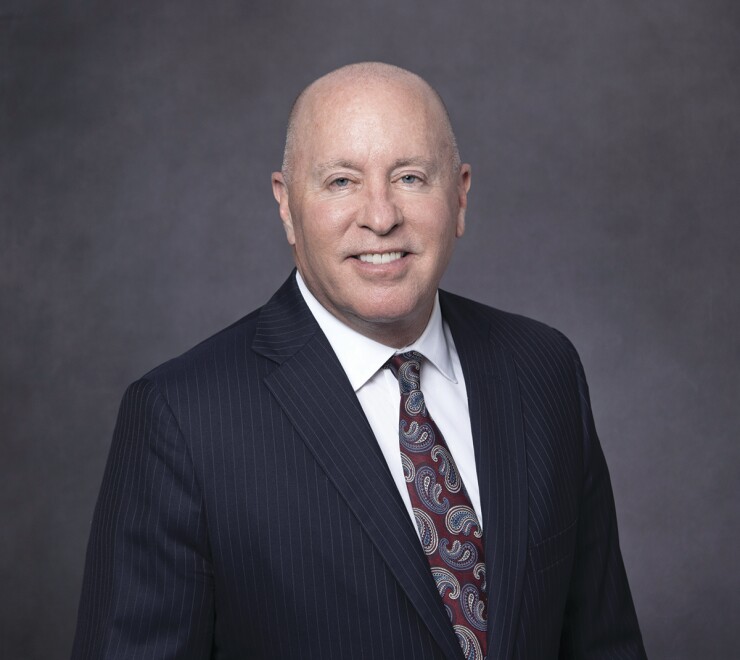
FirstSun Capital Bancorp's
The setback comes about five months after the Denver-based FirstSun
Neal Arnold, the $8.1 billion-asset FirstSun's president and CEO, said the companies were working to revive the transaction via what they termed "an alternative regulatory structure," in a press release this week.
"We are disappointed in the process to date, but we remain hopeful that we will be able to continue productive discussions with regulators in order to obtain regulatory approval," Arnold said in the press release. "We intend to continue to work with
HomeStreet and our regulators on possible solutions that will also make sense for our shareholders."
Texas Banking Commissioner Charles Cooper declined to comment. A Federal Reserve spokesperson had not responded to a request for comment at deadline.
Mark Mason, the Seattle-based HomeStreet's chairman, president and CEO, said in the release that regulators told the bank "that there were no regulatory concerns specifically related to HomeStreet that would have prevented approval of the merger."

If FirstSun and HomeStreet prove unable to devise a scheme that passes regulatory muster, Mason said the $9.2 billion-asset HomeStreet has a Plan B ready. It expects to sell $800 million of multifamily loans, then use the proceeds to pay off higher-cost wholesale funding. Since HomeStreet had arranged for a similar, smaller transaction as part of its sale to FirstSun, it's familiar with market conditions and believes it could arrange a new deal quickly, Mason said this week on a conference call with analysts.
"If we are unable to obtain regulatory approval and the merger agreement is terminated, we will immediately consider all our strategic alternatives, including operating HomeStreet on a stand-alone basis for the foreseeable future," Mason said on the conference call. Mason said further that the plan, including the loan sale, aims to return HomeStreet to profitability "in the near term, possibly as soon as the first quarter of next year."
HomeStreet plans to include longer-duration multifamily loans in the pool it offers for sale. While those are valued less than shorter-term credits with higher yields, selling them would have a bigger impact on HomeStreet's bottom line.
"We do not believe we will need additional capital to complete this loan sale," Mason said.
In a research note Friday, Janney Montgomery Scott analyst Timothy Coffey estimated HomeStreet could sell a portfolio of multifamily loans at about 92% of par value. That would require the bank to declare a pretax loss, but Coffey agreed it could be done without a capital infusion. "We estimate tangible common equity could remain well above 5.50% after the sale," Coffey wrote.
Mason declined to provide additional comments to American Banker.
Coffey suggested the smaller-size loan sale plan included in the proposed merger — $300 million according to Mason — may have been deemed inadequate by regulators. "We believe a much bigger amount of loans needs to be sold to reduce HomeStreet's CRE concentration ratio to appease regulators," Coffey wrote.
Wedbush analyst David Chiaverini wrote in a research note earlier this week that the Federal Reserve's recent decision to cut interest rates was an "incremental positive" for HomeStreet. Chiaverini, however, added the long duration of many of its loans means it might take two years for HomeStreet to produce profitability metrics in line with its peers — should it choose to remain independent.
"Our new base case is that the deal is called off, and that HomeStreet will remain a standalone entity. However, we believe HomeStreet may seek a different suitor in coming months at a similar valuation," Chiaverini wrote.
"If you assume a termination of the merger agreement, we will be free to consider all strategic options," Mason said on the conference call.
HomeStreet posted a third-quarter loss totaling $7.3 million Tuesday, pushing its cumulative loss through the first nine months of 2024 to $21 million. The earnings report did contain bright spots, including stable levels of core deposits, which increased during the three months ending Sept. 30, combined with continued strong asset quality. Though nonaccrual loans increased slightly from the third-quarter 2023 result, they remained low in absolute terms at 0.55% of total loans.
"Our loan portfolio remains well diversified with our highest concentration in western states, multifamily loans, historically one of the lowest risk loan types," Mason said on the conference call.
HomeStreet began experiencing difficulty in 2022, as the Federal Reserve began increasing interest rates. Rising rates sparked a corresponding increase in the cost of funds, but returns generated by the company's loan portfolio,
FirstSun reported third-quarter net income totaling $22.4 million Tuesday, down 11% from the same period in 2023.
Like HomeStreet, FirstSun is laying plans for a future with no deal. The company remains "focused on our organic business prospects following another quarter of strong financial results, including our strong earnings, liquidity, credit and capital profile," Arnold said.





